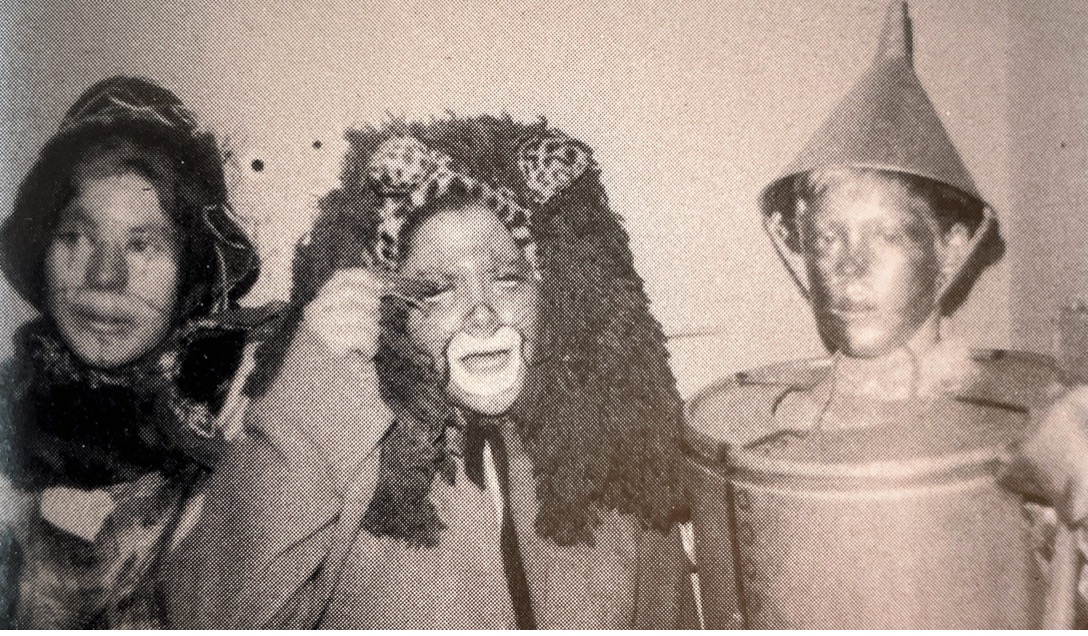Comments
ABE WON’T BE SILENT - Let me start by saying I never saw Wicked on Broadway. For whatever reason, I had no interest. Having starred in my 8th-grade production of The Wizard of Oz, I thought for sure it wouldn’t hold a candle to my art teacher, Mr. Conforti’s adaptation—to use the term loosely.

That’s Me Crying
I saw Wicked last night, curious about all the boohooing on the internet. I was like, “Ariana Grande…an Oscar nomination? How is that possible?” Clearly, what do I know? Turns out, not much. Cynthia Erivo and Ariana Grande deserve Oscar nominations plenty. Their jobs are to entertain, and entertain they did—times a hundred.
WOW. The forever-beloved Wicked celebrates friendship, takes us on a stunning journey of self-discovery, and explores the complexities of morality and being “other.” So much for all that “There’s no place like home” hullabaloo.
Beneath its glittering surface, the story presents a powerful allegory of oppression, marginalization, and liberation—one that resonated deeply with me as I couldn’t stop thinking about the experiences of Jewish people during World War II and their journey toward self-determination. Could it be because my parents survived the Holocaust? Hello. Do the math.
At the heart of Wicked lies the plight of the Animals, a marginalized group stripped of their ability to speak and live freely. They are demonized and excluded from society, a clear parallel to the systemic dehumanization of Jews during the Holocaust. In Nazi-occupied Europe, Jewish people were not only ostracized but subjected to violent suppression and extermination.
The Wizard, who masquerades as an “great and powerful” benevolent ruler but manipulates and deceives to maintain his power, embodies the tyrannical authority of the Nazis. He uses propaganda and fabulousness to control the masses in Oz, much like the Nazi regime did to spread its anti-Semitic ideology. And his army of monkeys as palace guards? Yeah, that made me uncomfortable.
Elphaba, the so-called "Wicked Witch," is the hero of this journey. She’s a poignant exploration of how society demonizes those who are different and dare to challenge injustice. She sees through the Wizard's facade and, driven by her moral compass, becomes a voice for the voiceless. Her unintentional spell that gives the monkeys wings becomes a profound act of liberation through unintended consequences. The freedom to fly is an abstract but powerful form of resistance.
The Wizard’s regime thrives on the complicity and silence of the people of Oz, keeping them busy with nonsense, echoing the way much of the world remained indifferent during the Holocaust. Wicked forces us to confront uncomfortable questions: What role do we play in perpetuating systems of oppression? How often do we accept narratives without questioning their origins or motives?
Elphaba’s journey also resonates with the broader Jewish experience of exile and diaspora. Like Elphaba, Jewish people have often been cast as outsiders, demonized for their differences, and forced to navigate societies hostile to their existence. Yet, her defiance and resilience embody the spirit of those who refuse to be silenced or defined by prejudice.
Ultimately, Wicked reminds us of the enduring struggle against oppression and the power of resistance. While the musical may not explicitly align itself with Jewish history, its themes of marginalization, propaganda, and liberation provide a compelling allegorical lens through which to view the experiences of Jews during World War II and their journey toward self-determination. It urges us to look beyond the surface, question authority, and champion justice—even when the world brands us as "wicked" for doing so.
And if you look at the flying monkeys as a metaphor for the Jewish people? It’s fascinating to see how they ultimately reject the Wizard and fly away with Elphaba, their new leader, kind of like their Golda Meir. (Work with me here, I know it’s a stretch.)
By the end of Act 1, the lingering questions are provocative: What will happen to them? Will they start the State of Israel? Does this mean the Wicked Witch I grew up fearing was never wicked? And seriously, does that make Glinda a total bitch? I have to see it again.
Peace…ABE
(ABE GURKO is the executive producer of a documentary “Won’t Be Silent,” about the extraordinary Women of Protest Music. He's an Opinionator who hosts a podcast, "Won't Be Silent," engaging in conversations from the edge of democracy. Abe is a contributor to CityWatchLA.com. [email protected].)






